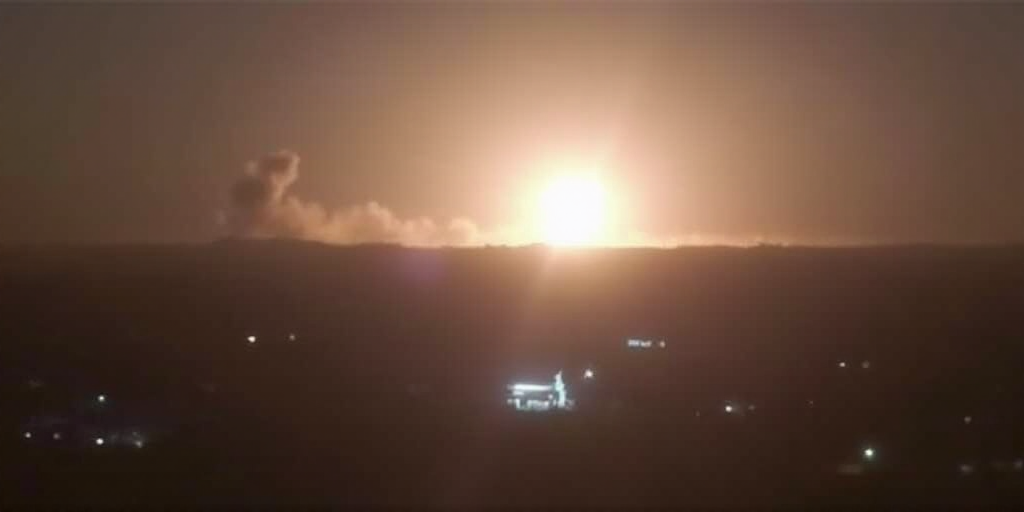Background on the Conflict
The conflict began last Friday when Israel’s military launched an unprecedented attack against Iran, aiming to prevent the country from acquiring nuclear weapons. This marks the first time in decades of indirect warfare and sporadic operations that the two nations have engaged in such intense military confrontation.
Key Players and Their Roles
Iran’s Islamic Revolutionary Guard Corps (IRGC) celebrated the “success” of their attacks and vowed to continue with “effective and more devastating operations against vital Israeli targets.” In response, Israel’s Defense Minister, Israel Katz, warned that Tehran’s residents would “pay the price” for attacks against Israeli civilians.
Details of the Recent Attacks
On Monday, Israel’s attacks targeted various locations across Iran, including the capital Tehran, the holy city of Mashhad in northeastern Iran, and military installations in the west of the country. The Israeli air force struck command centers of the IRGC’s Quds Force, which is responsible for external operations, according to the Iranian military.
A spokesperson for the IRGC reported that one-third of the country’s surface-to-surface missile launchers had been destroyed.
Impact on Both Nations
Since Friday, Israel’s attacks have resulted in at least 24 deaths and over a thousand injuries, according to Israel’s Prime Minister’s office on Monday. In Iran, the Ministry of Health reported 224 fatalities and more than a thousand injuries by Sunday.
Calls for Negotiation and International Response
Amidst the escalating conflict, Iranian President Hassan Rouhani urged national unity, stating that all differences should be set aside and the country must stand firm against this “criminal genocidal aggression” with unity and coherence.
U.S. President Donald Trump, an ally of Israel, called for both countries to reach an agreement while later suggesting they might need to “fight” first. U.S. Ambassador to Israel, David Friedman, reported minor damages to the embassy building in Tel Aviv from the attacks.
A senior U.S. official told AFP that Trump opposed an Israeli plan to assassinate Iran’s Supreme Leader, Ayatollah Ali Khamenei.
Impact on Daily Life
In Tehran, the Grand Bazaar, the largest market in the capital, remained closed on Monday. Streets appeared deserted as long lines of vehicles clogged the roads leading out of the city.
“We haven’t slept since Friday due to the terrible explosion noises. Today, they hit a house in our alley, and we were terrified. We decided to leave Tehran,” said Farzaneh, a 56-year-old resident.
In Petah Tikva, near Tel Aviv, Henny reported seeking refuge when she heard the sirens. “A few minutes later, we heard an explosion and, when we came out, saw the destruction—all the houses were gone,” she recounted.
International Efforts to Mediate
Turkish President Recep Tayyip Erdogan stated on Monday that he was willing to act as a mediator to end the conflict, according to the Turkish presidency. He also called for an “immediate” end to hostilities, echoing Russian President Vladimir Putin’s stance, as reported by the Kremlin.
Israel’s aerial campaign against Iran has killed high-ranking Iranian regime officials, including the IRGC commander and the army chief of staff, along with nine nuclear program scientists.
Both Israel and Western powers accuse Iran of seeking nuclear weapons, which Tehran denies while asserting its right to a civilian nuclear program.
Israel’s attacks targeted facilities such as the uranium enrichment center in Natanz, central Iran. According to the International Atomic Energy Agency (IAEA), the facility’s surface part was destroyed. However, the IAEA emphasized on Monday that there was no attack in the underground section, where the main enrichment plant is located.
Iran urged the IAEA to condemn Israel following these attacks.
Key Questions and Answers
- What sparked the current conflict? The conflict began last Friday when Israel launched an unprecedented attack against Iran, aiming to prevent the country from acquiring nuclear weapons.
- Who are the key players involved? The main parties are Israel and Iran, with support from the United States for Israel.
- What have been the consequences of these attacks? There have been at least 24 deaths in Israel and over 224 fatalities in Iran since the conflict began. Both nations have reported numerous injuries.
- What is the international community’s stance? Turkey and Russia have called for an immediate end to hostilities, while the United States has urged both countries to reach an agreement.
- What is Iran’s position on the accusations? Iran denies pursuing nuclear weapons, asserting its right to a civilian nuclear program.






